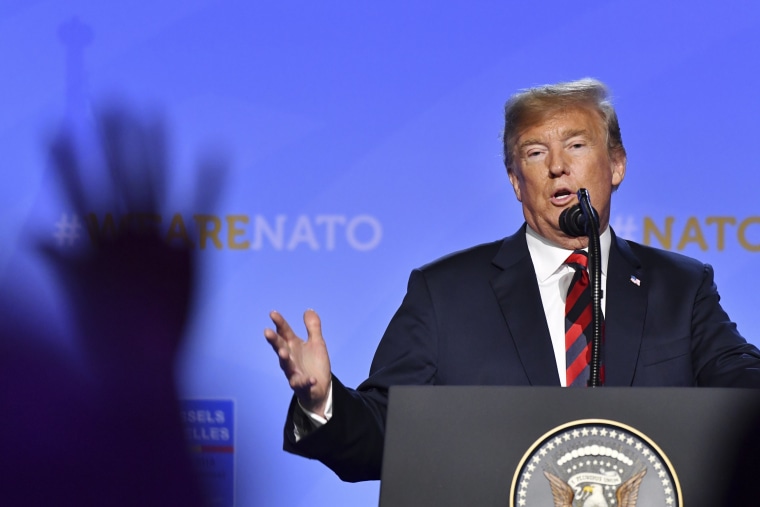It's been several days since Donald Trump announced plans to declassify sensitive materials from the investigation into the Russia scandal. The president admits he hasn't read the documents, but he's nevertheless convinced they'll help the White House's policy agenda -- which is evidently more important than the guidance from national security officials who urged Trump not to do this.
But as it turns out, when it comes to those who've given the president good advice, the list extends beyond officials who try to keep Americans safe. In fact, Trump unexpectedly made a little news last night.
President Donald Trump says several close allies of the United States have called to raise concerns about his decision to declassified a trove of documents related to the early days of the FBI's Russia investigation,Asked for a status update during an interview with Fox News host Sean Hannity in Las Vegas, Trump said: "Well, we're moving along."But he said his administration was "also dealing with foreign countries that do have a problem" and received calls Thursday from two "very good allies." He said: "We do have to respect their wishes. But it'll come out."
According to a transcript of the interview, Sean Hannity asked "how soon" the declassified materials will reach the public. It was in this context that Trump said, "We are also dealing with foreign countries that do have a problem. I must tell you. I got called today from two very good allies saying, 'Please, can we talk. It is not as simple as all of that.' And we do have to respect their wishes. But it will all come out."
I've written many times about the instances in which Trump has described conversations that only happened in his imagination, but in each of those cases, the president was trying to make himself look better by describing chats that never occurred.
His assertions last night were far easier to believe -- because they make Trump look worse.
Remember, intelligence gathering is often an international exercise. When Trump inexplicably divulged highly classified secrets to Russia during an Oval Office meeting last year, he was sharing sensitive information the United States had received from Israel.
With this in mind, it's not surprising that allied leaders would reach out to Trump, urging him to be more responsible. By divulging sensitive information to the public, the American president is taking enormous risks -- with international implications -- simply to advance a partisan scheme.
"We do have to respect their wishes," Trump said of our allies. "But it'll come out."
In other words, Trump is willing to acknowledge the concerns of our friends and partners, right before he ignores them.
By way of an explanation for his decision, the president added this week, "I have watched commentators that I respect begging the president of the United States to release them…. I have been asked by so many people that I respect, please – the great Lou Dobbs, the great Sean Hannity, the wonderful, great Jeanine Pirro."
Wouldn't it be great if he had as much "respect" for U.S. allies as he does for far-right television personalities?
